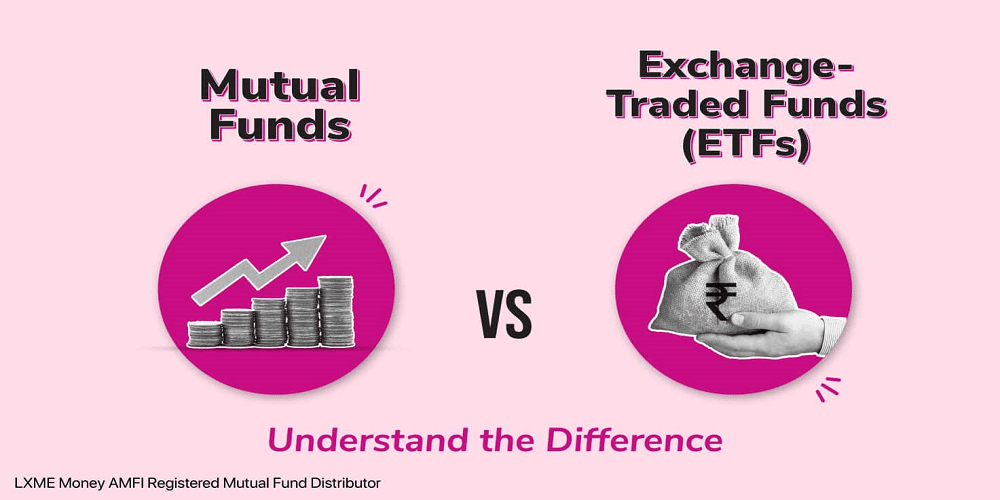Choosing between mutual funds and ETFs can be confusing, especially for new investors. Both offer diversification and professional management, but they have critical differences. In 2025, as the financial market evolves, understanding these distinctions is more important than ever.
What is a Mutual Fund?
A mutual fund pools money from many investors to buy a portfolio of stocks, bonds, or other securities, managed by a professional fund manager.
What is an ETF (Exchange Traded Fund)?
An ETF is similar to a mutual fund but is traded on stock exchanges like individual stocks. ETFs typically have lower fees and offer real-time pricing.
Key Differences Between Mutual Funds and ETFs
- Trading Method: ETFs trade like stocks; mutual funds trade once per day at NAV.
- Fees: ETFs often have lower expense ratios.
- Minimum Investment: Mutual funds may have higher minimum investments, while ETFs require just the cost of one share.
- Tax Efficiency: ETFs are generally more tax-efficient due to their unique structure.
Which is Better for You?
- Choose Mutual Funds if: You prefer automatic investing, dollar-cost averaging, or require active management.
- Choose ETFs if: You want lower costs, more trading flexibility, and a more hands-on investment approach.
FAQs
Q1. Are ETFs riskier than mutual funds?
Not necessarily. Risk depends on the assets held, not the structure itself.
Q2. Do mutual funds have hidden fees?
They may have sales loads and higher management fees compared to ETFs.
Q3. Which is better for long-term investment?
Both can be good; it depends on your strategy. ETFs are usually preferred for passive long-term investing.
Q4. Can I switch from a mutual fund to an ETF?
Yes, but it may involve selling your fund, which could trigger capital gains taxes.
Share On :



